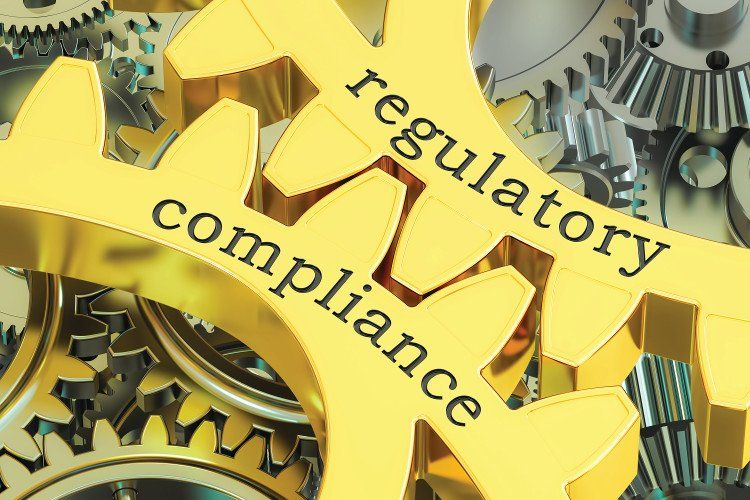The dietary supplement industry needs stronger enforcement, writes ChromaDex CEO (Op-ed)
ChromaDex CEO Rob Fried: “Although it is uncommon, perhaps, for a company CEO to request stronger regulations and regulatory enforcement for his or her industry, that is precisely what I am doing.”
Photo © Shutterstock.com/AlexLMX

Three out of every four Americans take a dietary supplement-and that number is growing. Yet, current regulations governing this massive market do not ensure that those supplements consumers are purchasing do what they say they do or even include the ingredients they claim to include. And that must change in order to protect consumer health and to ensure that honest companies operating in this space have a level and fair playing field.
To establish rules to guide the health supplements market, Congress passed the Dietary Supplement Health and Education Act (DSHEA) in 1994. But, while well intentioned, DSHEA’s rules are not strong enough, and, more importantly, they are not enforced to their fullest. And that opens the door for unscrupulous players in this market to introduce products that are not effective and not based on science, to make baseless and false claims about the efficacy of their products-or even to steal the intellectual property of other companies and claim it as their own.
A few bad actors diminish the reputation of the entire industry, erode consumer confidence in the products they are buying, and even threaten the health of consumers who are taking these products. Although it is uncommon, perhaps, for a company CEO to request stronger regulations and regulatory enforcement for his or her industry, that is precisely what I am doing. Poor enforcement and lax regulation are a problem for my company and for every other company in our market following the rules, investing in science and health discovery, and rigorously testing the efficacy of its products. According to the research firm Euromonitor, the dietary supplements market will surpass $17 billion by 2023. We need everyone in this dynamic and fast-growing market to understand and follow clear rules and regulations-and to be penalized or removed from the market if they refuse to do so.
Even the U.S. Food and Drug Administration recognizes that current regulations are not keeping pace with this vibrant market. That is why the agency recently hosted a meeting of industry leaders, academics, legal experts, and other key stakeholders to discuss the issues of regulation and enforcement and how to balance promoting innovation, scientific rigor, and consumer safety.
In my view, the process toward stronger market enforcement should focus on three simple steps.
Enforcement
The first step is enforcement. FDA requires notification any time a dietary supplement is introduced with a new ingredient, and proof that the supplement is safe for consumers. This is a good process that, when followed, leads to better products, champions the integrity of our industry, and, most importantly, protects consumer safety.
Unfortunately, it is not enforced, and bad actors are able to ignore the rules, bring products to market with limited substantiation or consumer safety protections, and steal the intellectual property of responsible companies who have made their science public through the notification process. Better enforcement and improvements to the process are desperately needed.
Incentivize
The second step is to introduce new incentives for compliance and investment in good science. For example, the same approach FDA used with drug companies to provide exclusivity rights could be applied to the dietary supplements industry. This approach would not only provide intellectual property protections, but it would also incentivize investment in science which would, in turn, elevate the integrity of the entire industry and weed out companies lacking scientific substantiation for their products.
Claims Substantiation
The third step is to establish rules that require companies to provide consumers with accurate information on the health benefits of their products, and to support those claims with sound, well-documented science. This would allow consumers to be better educated about the steps they can take today to improve their quality of life and to have confidence in the products they are buying.
The net result of these three important steps would be enhanced consumer safety protections, greater industry compliance, more pervasive and robust science, and increased consumer clarity and education. Not a bad return on smart regulation end enforcement.
At the end of the day, consumers who are looking for products that promote their health and wellness should be able to trust the safety of what they are consuming and the companies behind those products.
I am so proud to be part of an industry that each day strives to improve the lives of people worldwide and does so with state-of-the-art science from some the world’s greatest minds. But so great a mission makes the shortcomings that much worse. That is why I am asking everyone in our market to join me in calling for more rigorous rules and better enforcement, and to provide support for the FDA as they take on this challenge. Working together, we can promote a thriving marketplace in which good science is rewarded, compliance is attractive, and public safety is protected.
Rob Fried is the CEO of ChromaDex (Irvine, CA; https://www.chromadex.com), an integrated, global nutraceutical company devoted to cellular health and improving the way people age. A seasoned chief executive officer, successful entrepreneur, and enterprise builder, Mr. Fried has a track record for driving transformational growth across a variety of industries. He is an Academy Award-winning motion picture producer and Emmy Award-winning television producer. He holds a B.S. from Cornell University and a M.B.A. from the Columbia University Graduate School of Business.

Judge denies CRN’s motion for preliminary injunction but its lawsuit against NY state will proceed
April 23rd 2024The judge in CRN's lawsuit against NY state's law banning the sale of weight management and muscle building supplements to minors has denied its motion for a preliminary injunction, but determined that CRN has standing to sue on behalf of its members.
CRN NY State lawsuit update: Dispatch from SupplySide East 2024
April 18th 2024CRN's Steve Mister updates Nutritional Outlook about its ongoing litigation against NY State. The organization sued the state to prevent the enforcement of law that bans sale of weight management supplements to minors.
U.S. Hemp Authority announces Adult Use Hemp Product Certification Program
April 15th 2024The U.S. Hemp Authority (USHA) has announced the launch of its Adult Use Hemp Product Certification Program in an effort to “reshape public policy around hemp, and to build confidence among retailers and consumers alike.”